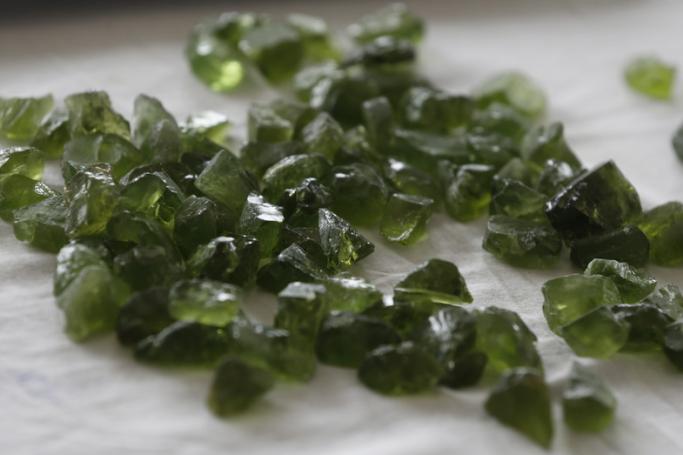Campaign Group Progressive Voice has issued a statement highlighting how Myanmar's natural resources are being plundered by the junta and its cronies.
The group says that the attempted coup d'état has opened the floodgates for natural resources to be exploited unsustainably, having a devastating effect on the environment, particularly in Kachin
and Shan States.
Mining is almost always done without regard to human rights and due diligence. Mining companies do not usually get consent from local people or consult them. While people are losing their land,
lives, livelihood and heritage military leaders, cronies and foreign companies reap the profits.
The worst exploiter of natural resources is the Myanmar military. The links between the Myanmar military’s businesses and the funding of their atrocity crimes are concrete and have been exposed by
activist groups like Justice for Myanmar and in the Independent International Fact-Finding Mission on Myanmar (IIFFMM) report.
The IIFFMM exposed the vast web of military-linked businesses, including in the jade, gems, gold, coal, timber, oil and gas extraction industries, under the umbrella of Myanma Oil and Gas
Enterprises (MOGE), Myanma Economic Holdings Limited (MEHL), Myanmar Economic Corporation(MEC) and other military-linked enterprises.
The report showed that these military-linked businesses not only enriched the military’s leadership, but funded the Rohingya genocide, crimes against humanity and war crimes in Kachin and Shan
States.
Kachin State has rich mineral deposits of jade, rubies, sapphires, other gems, gold and rare earth elements. In the 1990s, the Myanmar military heavily exploited Kachin State, without local consent,
in collaboration with Chinese companies. This has caused land loss, polluted waterways, eroded riverbanks, silt damaged forests and ecosystems. It has also damaged the social fabric of people
affected by and involved with mining.
Currently, in Kachin State the Myanmar military, the Kachin Independence Organization (KIO) and others are all mining for gold.
The economic downturn in the aftermath of the military’s coup attempt has pushed people to scrabble for resources. Miners use unsustainable mining techniques and failing to ensure the safe
disposal of poisonous mercury. Communities and environmental activitists in the Myitsone river area of Kachin State, are voicing their concerns that the use of heavy dredging equipment, dumps silt and
wastewater into the waterways, which ruins the environment.
Many hundreds of thousands of long-term internally displaced people (IDPs) from Kachin State who have been displaced by armed conflict are being forced to sell their ancestral lands, with others
having their land ruined or taken from them during this gold rush.
Though the KIO claims it is not the main culprit when it comes to damaging gold mining, local people are calling on them, as the governing entity representing the people in the region, to provide a
solution to this problem and end unsustainable gold mining practices.
Another earner for the junta is jade and gems. Global Witness says that the jade and gem industry is controlled by the junta leader Min Aung Hlaing. Prior to the coup, between 2014 and 2017,
conservative estimates by Global Witness valued Myanmars gemstone industry as being worth between $346 to $415 million USD per annum - based on official production volume data.
When smuggling and illegal trading were taken into account Global Witness estimated that the value of the jade and gem market rose to an average of US$1.73 billion to US$2.07 billion annually during
the same four years.
While Harry Winston and Tiffany’s are no longer sourcing gems from Myanmar, others such as Sotheby's, Christie’s and Walmart cannot show an ethical supply chain. Myanmar is the second
largest producer of gems, and produces 90 percent of the world’s jade, mostly exported to China.
Jade mining, is particularly damaging to the environment. The industry has poor safety regulations and the mines' management is unaccountable, which has led to preventable deaths. In December
2021, at least three people were killed and over 70 people went missing because of a landslide at a Hpakant jade mine in Kachin State. Previously, in 2020, at least 168 died in accidents in the same
area.
In Shan State, the military junta has been unlawfully granting land concessions of 500 acres for coal mining to a crony company Ngwe Yi Pale and its subsidiaries. Ngwe Yi Pale has cleared land and
blocked streams, without consent from local people.
The Myanmar military has also been aggressively seeking to build at least 20 more dams in Shan State, to export the majority of the power generated to China and Thailand.
Shan-based communities and civil society have been outspoken and protesting for the end of damming projects, as rivers are the lifeblood of communities and should be protected for future
generations.
The French company Razel-Bec is continuing to construct a dam on the Namtu River in northern Shan State in a joint venture with a subsidiary of the EU-sanctioned International Group of
Entrepreneurs (IGE) military crony conglomerate. A local community leader, Sai Kham Harn told Shan Human Rights Foundation that “We urge foreign companies to immediately pull out from all
dam projects in Shan State. These dams only benefit the regime and fuel their atrocities against civilians.”
The military junta is making hundreds of millions of dollars from the oil and gas industry through MOGE.
On 20 June, 459 Myanmar and international civil society organizations called on President Emmanuel Macron and the French government to not grant TotalEnergies an exemption from EU
sanctions on MOGE, because such an exemption would mean money going to the junta. The US government has yet to sanction MOGE, but this is provided for in the Burma Bill, which has passed
the House of Representatives and awaits a vote by the Senate.












